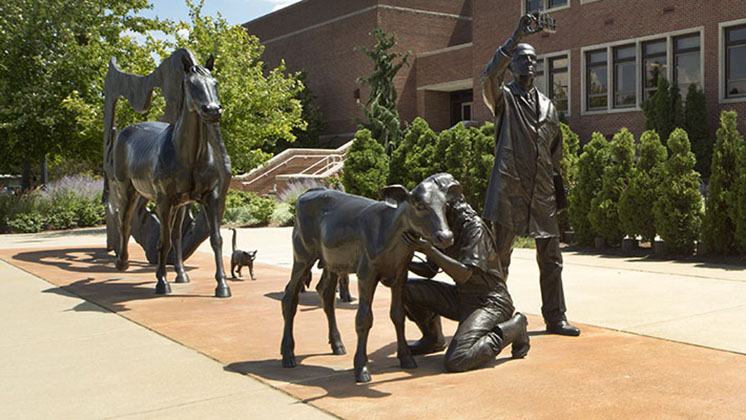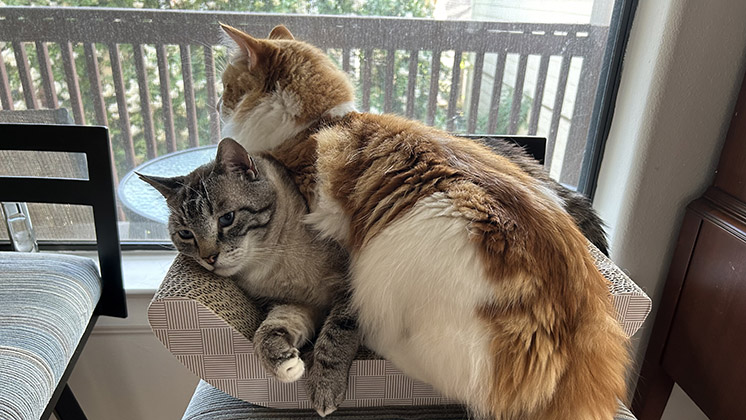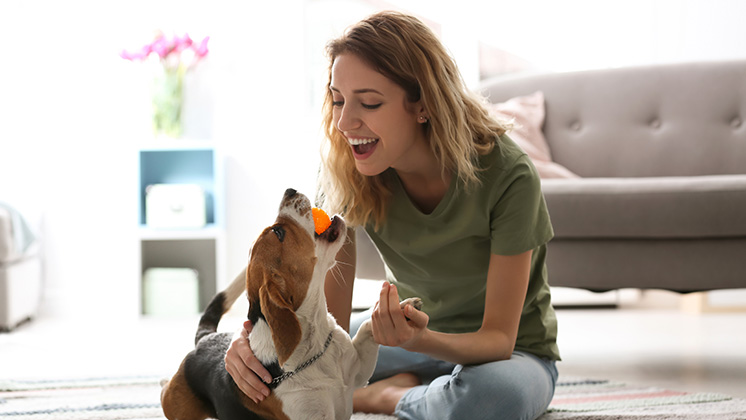Can Animals Help Military Families Thrive?

Military families face unique challenges—from frequent relocations to supporting loved ones with PTSD—that can strain relationships and emotional well-being. While many interventions exist to support veterans, there is growing interest in how whole-family interventions might bolster resilience and well-being. One promising approach is animal-assisted interventions (AAI).
AAIs involve incorporating animals into therapeutic settings to aid physical or psychological healing. They have shown positive impacts on veterans but what about their families? This systematic review sought to answer that by evaluating existing literature on the effects of AAIs on military family members beyond the veteran.
Key Findings
The review analyzed nine studies, primarily from the U.S., focusing on service dogs and equine-assisted services (EAS). Key insights included:
- Equine-Assisted Services: Engaging with horses helped improve communication, reduced relationship issues, and alleviated symptoms like depression and PTSD. Horses seemed to act as catalysts for emotional connection and healing.
- Service Dogs: These animals, embedded in daily family life, were shown to support emotional bonds and foster resilience, though some spouses experienced increased caregiver burden.
Why It Matters
Military families face stressors like separation and reintegration challenges that non-military families may not. AAIs could offer these families unique benefits, strengthening their social and emotional fabric. However, the review also highlighted gaps in research, such as the lack of studies involving children and other animal types beyond horses and dogs.
Moving Forward
More comprehensive and varied studies are needed to understand AAIs' full potential for military families. The authors suggest future research should include diverse interventions and involve family members at all levels, not just veterans. This review shines a light on AAIs' potential as a powerful, family-centered tool to help military families build resilience and thrive amidst their challenges.
Read the Research Paper
This article was based on the research of Dr. Leanne Nieforth and the HAPI lab. Read the research:
Suggested Articles

The Growing Global Landscape of Human-Animal Interaction Centers
Explore the rapid growth of human-animal interaction (HAI) research from 2016 to 2021, focusing on global collaboration, educational integration, and advancing the well-being of humans and animals alike.
Read more
The Role of Pets in Managing Pandemic Uncertainty
Discover how pets became essential emotional lifelines during the COVID-19 pandemic, offering comfort, routine, and stress relief amidst unprecedented uncertainty.
Read more
How PTSD Service Dogs Affect Partners of Veterans
Learn how PTSD service dogs influence the emotional well-being of veterans' partners, fostering positive emotions like calmness and confidence while highlighting their broader impact on family dynamics.
Read more
